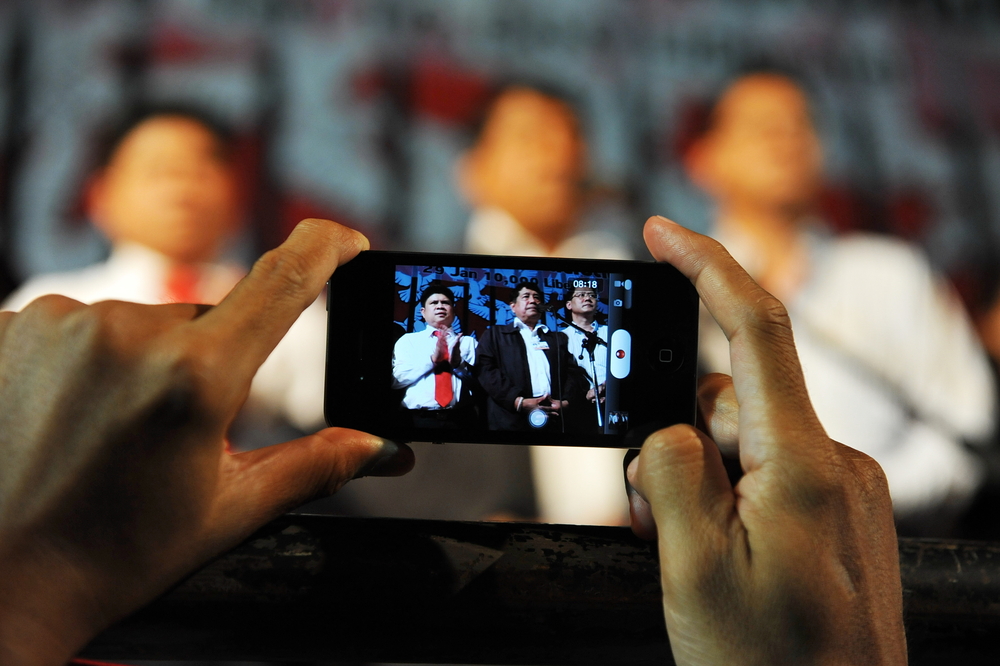Fair Observer’s five best articles of May.
As temperatures start rising in the northern hemisphere, the US has just raised them further by calling China a “destabilizing” force. To say that May 2014 has been eventful would be an understatement. China already has strained ties with Japan over islands near Taiwan in the East China Sea. Now, it is embroiled in a dispute with the Philippines and Vietnam over islands in the South China Sea. China’s installation of an oil rig set off protests in Vietnam. Now, Vietnam, the Philippines, Japan and the US have forged a united front against China. It is most likely that tensions will abate shortly, but the cycle of provocation and retaliation in Asia is acquiring a worrying pattern.
This month, two Asian countries have demonstrated two models of government. After months of opposition, the Thai elite have dropped all pretence and the military has conducted a coup. Yingluck Shinawatra, the former prime minister, has been deposed. Divisions will increase further in a country that is already deeply divided. Some question whether Thailand can remain united for much longer.
Elsewhere in Asia, after a protracted election and a grueling campaign, India elected Narendra Modi as prime minister. He is the leader of the center-right Bharatiya Janata Party (BJP) that won on its promise to increase economic growth and generate jobs. The Congress party that has been in power for much of India’s independence lost badly. The Nehru dynasty that leads the party has suffered a big blow and some claim that the Nehruvian model itself is in question.
In Europe, there has been a political earthquake. There was a surge in votes for far-right parties across the continent. In the UK and France, they won the maximum vote share. This has shaken Europe. For far too long, the European project was an elite enterprise. It suffered from a democratic deficit that everyone talked about ad nauseam whilst doing little to address it. David Cameron, the British prime minister and a leader for the television era, announced that Brussels had become “too big, too bossy and too interfering.” Cameron has already promised a referendum in the UK on leaving the European Union (EU). Britain has long had a tradition of skepticism vis-à-vis Europe. Now, other countries are questioning their membership of the EU as well. As high unemployment buffets the continent, the European project is suffering in popularity even in hitherto impregnable bastions such as Spain.
As World Cup fever is breaking out across Brazil and the entire world, the Brazilian economy has slowed down in the first quarter of 2014.
In Turkey, an explosion in a coal mine left more than 200 people dead and many more injured. Those trapped were two kilometers (1.2 miles) below the surface and about four kilometers (2.4 miles) from the entrance. The mine was privately owned and lacked basic safety features. This raises questions about the economic development model that Turkey has been following under Prime Minister Recep Tayyip Erdogan. International Labor Organization statistics reveal approximately 1,200 deaths in Turkey because of unregulated and unsafe working conditions, the third highest rate in the world for fatal occupational accidents. Erdogan has reacted callously, unions are protesting and Turkey is in mourning. Workers’ safety will come under scrutiny in the days to come.
In South Africa, President Jacob Zuma took charge with a jumbo cabinet. It seems that Zuma is shoring up support within his party that has shifted significantly to the left. Even so, seven members of parliament have resigned since Zuma announced his cabinet. It is clear that the African National Congress is becoming a party of patronage, with members working less for their stated ideals and more for their personal interests. Meanwhile, South Africa’s economy is ailing as platinum workers continue to be on strike.
As World Cup fever is breaking out across Brazil and the entire world, the Brazilian economy has slowed down in the first quarter of 2014. It grew by a measly 0.2% as inflation and low business investment took their toll. The central bank has raised interest rates to 11% to curb rising prices. The specter of protests during the FIFA World Cup has reappeared with gusto.
On a final note, this month we launched our new website. Please give us feedback about how to improve it further. Meanwhile, please find below our best articles for May.
[seperator style=”style1″]1: Private Information and Online Security: How to Disappear From Big Brother[/seperator]
As our online presence increases, so do the security risks to our private information.
In today’s world of mass surveillance and obsession with social media, Frank M. Ahearn’s job is to help people erase their digital footprint. Initially working undercover for private investigators, Ahearn discovered he had an amazing knack for tracking people. In the world before Internet, there was an underground of gray information, which he was an expert at navigating. But, as the laws changed, and personal information became easily available, Ahearn decided to turn the tables on his old job. Read more
[seperator style=”style1″]2: Modi Wins Big as India Aspires for Prosperity[/seperator]
Modi has been elected to ensure economic growth, increase employment, lower inflation and lift millions out of poverty.
India’s cacophonous and protracted elections have resulted in a clear winner. Narendra Modi will lead his Bharatiya Janata Party (BJP) government without needing the support of any other party in parliament. This is the first time a non-Congress party has won a complete majority and signals the end of coalition politics, at least for now. A low caste tea-seller has risen to the premiership of the world’s largest democracy, defeating a powerful political dynasty. Read more
[seperator style=”style1″]3: Crimea and the State of Secessionism[/seperator]
Recent events in Crimea are indicative of a larger phenomenon: the rise of independence movements by distinct identity groups across the globe.
No one has any illusions regarding Russia’s frequent intrusions into its neighbors’ affairs. The Kremlin considers all post-Soviet states — with the possible exception of NATO member Baltic states — to be within its sphere of influence.
Therefore, when first Georgia, and now Ukraine, began cozying up to the West, Moscow found it within its national interest to meddle, destabilize and weaken its neighbors enough to maintain its dominance. Read more
[seperator style=”style1″]4: The Real Face of Thai Political Reform Today[/seperator]
Democracy in Thailand cannot be realized until the elite favor rule of law over rule by law.
Thailand is a political mess. For the fourth time since 2006, against the will of the majority electorate, an elected prime minister has been forcibly removed from office. The “Thai political crisis,” as it is often labeled, is nevertheless a misnomer. A political crisis, by definition, is when conflicting parties must make consequential decisions in a short period of time with limited information. Thailand’s conflicting parties are indeed making consequential decisions but not within a short period of time, and not with limited information. Read more
[seperator style=”style1″]5: Kejriwal and the Changing Fortunes of the Aam Aadmi Party[/seperator]
Despite Kejriwal’s loss of public support, the AAP brings new ideas and fresh energy to Indian politics.
It is said that good things come to those who wait. In the case of Arvind Kejriwal and the Aam Aadmi Party (AAP), this was true till December 2013. The party won 28 seats, surprising everyone to form the government in Delhi.
The AAP has suffered some serious setbacks since. Kejriwal resigned from the chief minister’s post in 49 days over the Lokpal Bill. The party contested elections to the Lok Sabha, India’s lower house of parliament, but won a mere four seats in Punjab. Read more
Dmitry Islentev / Petya Nikolova Petrova / Arindambanerjee / AlexandCo Studio / 1000 Words / Shutterstock.com
Support Fair Observer
We rely on your support for our independence, diversity and quality.
For more than 10 years, Fair Observer has been free, fair and independent. No billionaire owns us, no advertisers control us. We are a reader-supported nonprofit. Unlike many other publications, we keep our content free for readers regardless of where they live or whether they can afford to pay. We have no paywalls and no ads.
In the post-truth era of fake news, echo chambers and filter bubbles, we publish a plurality of perspectives from around the world. Anyone can publish with us, but everyone goes through a rigorous editorial process. So, you get fact-checked, well-reasoned content instead of noise.
We publish 2,500+ voices from 90+ countries. We also conduct education and training programs
on subjects ranging from digital media and journalism to writing and critical thinking. This
doesn’t come cheap. Servers, editors, trainers and web developers cost
money.
Please consider supporting us on a regular basis as a recurring donor or a
sustaining member.
Will you support FO’s journalism?
We rely on your support for our independence, diversity and quality.












Comment